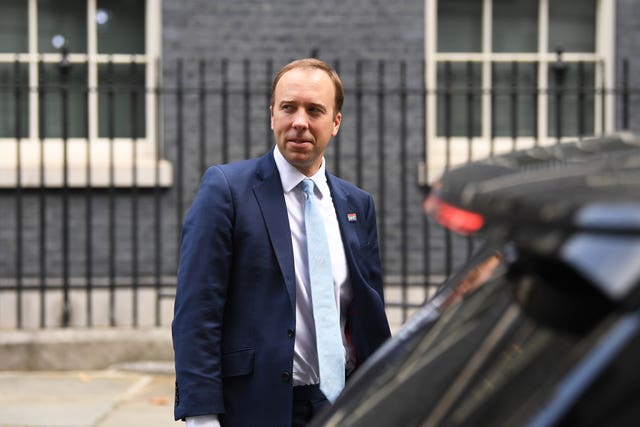Isolated care home residents are “dying of sadness” and the Government must set out how they can stay in contact with their loved ones in its winter action plan, charities said.
Charities and unions welcomed Thursday’s announcement of more than half a billion pounds of extra funding to help reduce transmission of coronavirus within care settings in England.
They have now set out the areas they want addressed by the Government’s action plan to help the social care sector prepare for winter, expected on Friday.
Age UK said it is “one of the most important documents a Government will ever publish so far as older people and social care are concerned”.
Charity director Caroline Abrahams said it is important the plan achieves an “appropriate balance” between ensuring infection control and allowing residents to keep in contact with loved ones.
She said: “It is possible to have safe visiting in care homes but this requires a rigorous approach from providers and ready access to enough personal protective equipment (PPE) and testing.
“There will always be a risk that a visitor unintentionally brings the infection into a care home but this risk can be managed, and it has to be considered alongside the dire consequences for care homes residents, those with dementia especially, of being cut off from loved ones for long periods of time.
“There is no doubt that some older people to whom this is happening are dying of sadness as a result.”
She added that she hopes the plan will not forget informal carers, who she fears may be unable to cope without more access to practical and emotional support.
The extra money, announced by the Department of Health and Social Care, is intended to help pay staff full wages when they are self-isolating and ensure carers work in only one care home, reducing the risk of spreading the infection.
The Infection Control Fund, set up in May, has been extended until March and will offer the sector an extra £546 million to help providers through the winter months.
Health Secretary Matt Hancock said it would bring “peace of mind” to many in the sector.
The Local Government Association said the funding must be accompanied by sufficient testing in the community and a “consistent, reliable supply” of PPE for care staff.
The learning disability charity Mencap welcomed the additional funds, but warned they “cannot be a substitute for a decent settlement for social care in the forthcoming spending review”.
Jackie O’Sullivan, executive director of communications, advocacy and activism, said: “We hope that tomorrow’s winter plan includes clear guidance to facilitate family visits in all care settings.”

National officer Rachel Harrison welcomed the funding, but said some of the £600 million announced by the Government in May still has not reached care homes.
She continued: “It’s now an imperative that we get a commitment to ensure that all of funding reaches our social care heroes on the front line.
“But the single biggest weapon to fight Covid-19 is for the Government to commit to full pay for social care workers who have to take time off work due to coronavirus.”
Unison assistant general secretary Christina McAnea added: “With a shambolic testing system and infection rates starting to skyrocket, care homes need all the protection they can get.
“Extending the funding was the least that could be expected, but the money is simply not getting through to the care staff that need it.”






